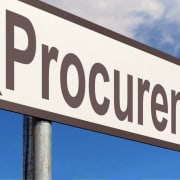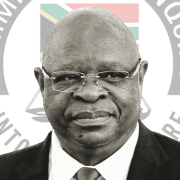|
Getting your Trinity Audio player ready...
|
When the state capture commission began its hearings in August 2018, its first witness was National Treasury’s acting chief procurement officer at the time, Ndleleni Mathebula. His testimony was an overview of the state’s public procurement system, its challenges and positives. He placed government’s average annual spending on procurement at R800-billion, and said the degree to which processes were flouted in public procurement was worrying.
Mathebula described the successes and weaknesses of the current legislative framework that governs public procurement, as well as how it can be enhanced. There was a need for government to better its systems, which he said were fragmented and not supportive of each other.
Four years later, at the end of the commission’s work, it has made recommendations that deal with the structural weaknesses that make the enforcement and accountability elements of public procurement legislation a more collaborative effort so that consequences are seen to happen when corruption has occurred. The implementation programme expected from President Cyril Ramaphosa in October will be no good if it doesn’t address this as a matter of urgency.
In terms of the commission’s work, having Mathebula as the opening witness was a clever move, as it gave the public some perspective at the beginning of an inquiry that would, over four years, hear evidence of billions being lost to state capture through the flouting of procurement rules. Along with these allegations, the commission heard how, more often than not, there was no accountability for irregularities in procurement, despite the existence of consequence management tools in the laws that govern the space. The public sector’s regulatory mechanisms are there to ensure that procurement as protected by the Constitution happens in the best interest of the public for which services are intended.
That takes care of the public sector, but what of the private sector that stands to gain from this plentiful public procurement pie? What has it brought to the table as solutions to the gross irregularities unearthed by the commission?
Over the course of the inquiry, a number of multi-national and local companies came under scrutiny for their alleged role in the capture and exploitation of state institutions. From consulting giants such as McKinsey and Bain, and suppliers of technical services for parastatals, to the Free State asbestos project joint venture found to be riddled with dishonesty, the examples are plenty. Commission chairperson Chief Justice Raymond Zondo found that a separate category of companies gained access to lucrative state contracts by virtue of their proximity to, and association with, the politically connected Gupta enterprise, which includes companies owned by the family.
Zondo notes in the final instalment of his report, released on 22 June, that: “Gupta enterprise state capture created a culture of corruption and indifference to cost in many state-owned enterprises and government departments. There is a reason to believe that third party contractors, who were protected by their relationship with the Gupta enterprise, exploited this culture to charge the state excess amounts even beyond those necessary to recover the cost of the kickbacks they were paying to the Gupta enterprise.”
The report in its entirety finds in damning terms against past leadership of state-owned entities, Cabinet members under whom certain departments are managed, and several key public officials that Zondo named as enablers of state capture. The commission places the figure of losses to state capture at R57-billion, with Eskom and Transnet as the biggest losers, accounting for 97% of that amount.
Private sector must atone for its state capture sins
The report is significantly thinner on findings against the private companies that participated in the same capture projects.
If the ultimate outcome of the commission is an environment where state capture cannot happen again in South Africa, then there is an imperative on the private sector to participate in the exercise of building a more professional public procurement system. This last factor is one of Zondo’s recommendations.
He further notes: “Procurement has a legitimate transformation role to play in South Africa. State institutions are permitted to use procurement as a policy tool to advance the interests of various designated groups. However, evidence shows that the ideals of empowerment were grossly manipulated and abused to advance the interests of a few individuals.
“State capture, and its exposure, has dominated the national discourse in recent years. The effect has been predictable and negative: a loss of confidence both in government and political parties and in the business sector, compounded by frustration at the pervasive lack of accountability for wrongdoing.”
As we watch the space for any resolutions from the private sector, we emphasise that no reform of the public procurement space will be successful without their participation.








